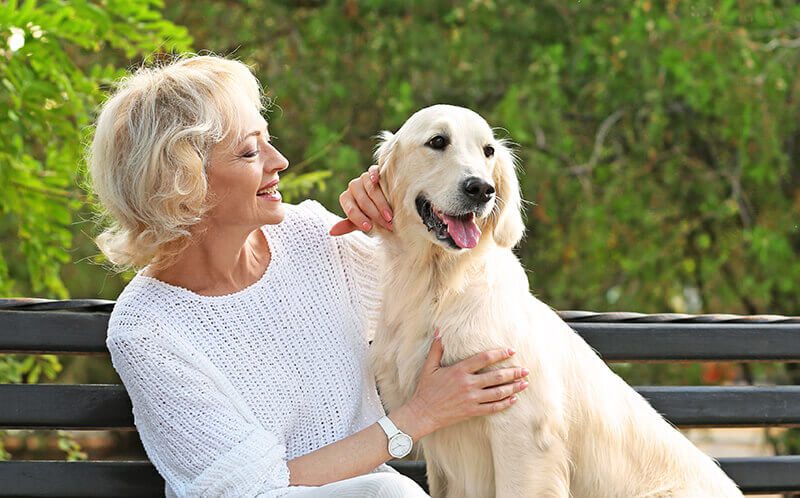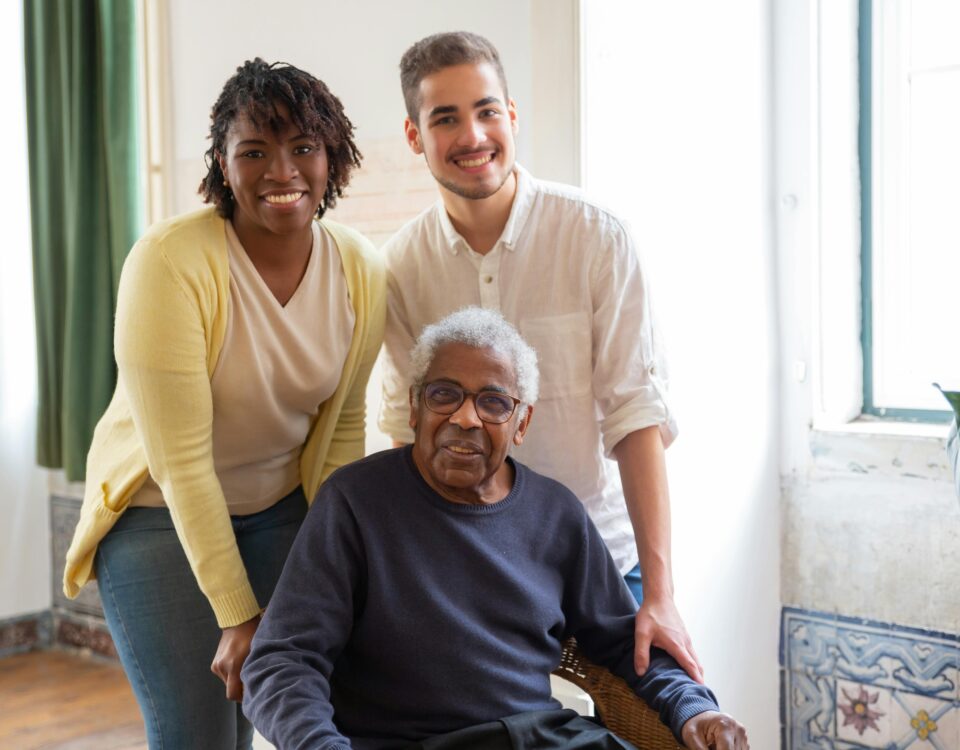Pet Therapy for Seniors

April is Couple Appreciation Month: Help Mom and Dad Celebrate
April 10, 2017
Dealing with Parkinson’s Disease
April 11, 2017Pet Therapy for Seniors
A Natural Interaction
There is a pre-existing human-animal bond involved with pet therapy. People are happier and healthier when they are in the presence of animals. It is scientifically proven that the human-animal bond increases positivity and socialization, decreases blood pressure, and reduces anxiety, stress, and depression.
 Due to these amazing benefits, several skilled nursing facilities across the nation now offer or allow pet therapy for seniors, for therapeutic purposes. Pet therapy is used to support health and healing for seniors of all ages with various health conditions.
Due to these amazing benefits, several skilled nursing facilities across the nation now offer or allow pet therapy for seniors, for therapeutic purposes. Pet therapy is used to support health and healing for seniors of all ages with various health conditions.
What is Pet Therapy?
Pet therapy is a controlled interaction between a trained animal and a human being, also involving the animal’s handler. The objective of pet therapy is to assist someone in coping with or recovering from a health problem or mental disorder. Not only can pet therapy reduce blood pressure and improve overall cardiovascular health; it can also release endorphins that reduce stress, alleviate pain, and improve your psychological state.
The Science Behind the Human-Animal Bond
Positive human-animal interaction coincides with changes in physiological variables for both the human and the animal. This interaction appears to impact heart rate, blood pressure levels, and hormones correlated with well-being such as oxytocin. Oxytocin is a neuropeptide known for its function in bonding, stress relief, and socialization. Studies show that human-animal interaction increases levels of oxytocin in the brain. The physiological changes caused by oxytocin include a slower heart rate with relaxed breathing, lower blood pressure, and creating a sense of calmness, focus, and comfort. Animal therapy benefits both the pet and the human involved.
Human-animal interaction, as demonstrated by scientific research, is linked with healthy aging. Research shows that there is a strong association between deep attachment to a pet and less depression among elderly people. Human-animal interaction could reduce loneliness in residents of care facilities. One study shows that individuals who were visited by dogs reported less tension, fatigue, confusion, and depression.
How Pet Therapy Benefits Your Patients
For those who suffer Alzheimer’s and other related diseases, research demonstrates that human-animal interaction can play an important role in improving the quality of life for the patient as well as the caregiver(s) responsible. Trained therapy dogs can assist those with Alzheimer’s in daily tasks such as fetching newspapers, slippers, and even medication. Therapy dogs can also reduce agitated behaviors and improve the social interactions of patients with dementia. Animal-assisted therapy also benefits caregivers by reducing their physiological stress.
The benefits of pet therapy are apparent through their positive impact in both mental and physical health. For example, a simple act of petting delivers an automatic relaxation response that stimulates the release of serotonin, prolactin, and oxytocin. These hormones play a vital role in the uplifting of one’s mood. Pets can offer comfort and decrease loneliness and depression by providing companionship as well as a pleasant focus for attention.
Sources: healthline.com, habri.org, pawsforpeople.org
Disclaimer: 1Heart Caregiver Services Blog may contain articles about health care and medical related topics. However, no warranty is made that any of the articles are accurate. There is absolutely no assurance that any statement contained or cited in any or our articles touching on health care or medical related matters is correct, true, up-to-date, or precise, If any of the statements we mentioned about healthcare or medicine is accurate, it may or may not apply to you or your symptoms.
The health care or medical information provided on 1Heart Caregiver Services is, at best, of a general nature and cannot replace the advice of a healthcare/medical professional. 1Heart Caregiver Services will not take responsibility for the results or consequences in attempting to use or adopt any information presented in its blog articles.

